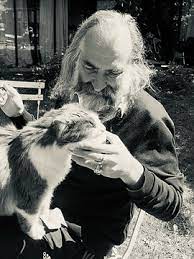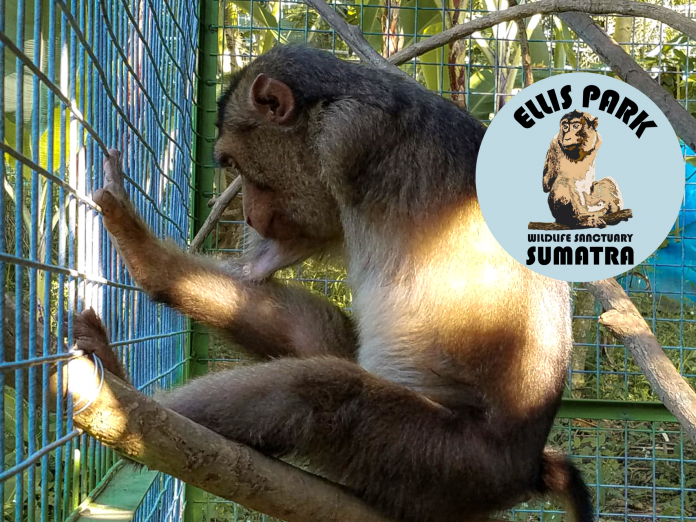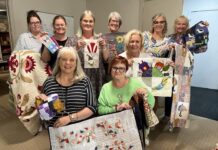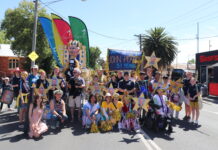ESC students Levity and Mhairi recently met with Lorinda Jane, one
of the co-founders of the Ellis Park Wildlife Sanctuary in Sumatra.
Sitting with her on the Eaglehawk main street, they got to know
more about her story and her ventures into animal rights activism.
How were you inspired to establish the sanctuary?
I had been working in conservation for over ten years when Warren Ellis approached me about funding the sanctuary. I was able to connect him with the right people, and he asked me to stay on as one of the founders longside himself and Femke den Haas.
How did you meet Warren and Femke?
I’ve been mates with Warren for over 30 years, I used to work in the music industry with his band The Dirty Three. We lost touch for awhile when he moved, but we reconnected recently when he approached me about starting the sanctuary. That’s when I connected him with Femke, who I’ve previously worked on a few conservation projects with. She’s always been the type of person to get the job done speedily and efficiently.
What is Ellis Park’s vision statement?
Our vision is really just to grow, and hopefully one day start to house other forms of wildlife like elephants, who play a big part in the exploitation within the tourism industry. We’re hoping to extend our parcel of land in Sumatra to be able to support more animals.
Where do you hope to get the funds for the expansion?
Most of our funds come from monthly donors at the moment. We’re all unpaid volunteers, so 100% of the profits go towards the sanctuary, and it really just adds up. Our fundraising process is all run through our Instagram and Facebook pages, so when we need donations, we can put a call out on there, and people usually respond pretty well. Since Warren is fairly popular, he helps with a lot of publicity too. The products sold online and in the POI Eco store in Eaglehawk also contribute quite a bit of funds.
Why did you choose to set up in Sumatra?
Sumatra and Borneo are some of the only places in the world where animals like orangutans, rhinos and tigers live, and they’re adjacent to Thailand, which is where a lot of the elephant abuse takes place. The illegal wildlife trade over there is also rife. The majority of ‘exotic’ pets that make it to Australia, or the USA, or the UK, were poached from Indonesia. Our sanctuary is based in South Sumatra, which is where the main smuggling routes are.
Our vision is really just to grow

Can you tell us about your use of wildlife detection dogs?
Our wildlife detection dogs are part of a program run by the
Sumatran Wildlife Sanctuary next door to the Ellis Park
reserve. Their job is to find captive animals at the smuggling hubs. It’s pretty gruesome conditions – birds in bottles, monkeys in tiny cages – not even a cubic metre. These animals are often packed as tightly as
possible and are rarely given adequate food and water. Our dogs sniff under vehicles, in crates, wherever we could find an animal. Sadly, these creatures have often already died due to the harsh conditions around them and of injuries that may have been sustained in their enclosures.
How about the residents you’ve been able to save?
Well, the first animal to move in to Ellis Park was Trinity, a gibbon who had been locked in a small cage for 23 years. Trinity was found missing half an arm, which we believe was amputated by the same machete that killed her mother. She also had a broken leg which had never been treated, and she was severely malnourished due to a diet of junk food.
The next animal was a pig tailed macaque monkey named Rina, who has become the mascot of Ellis Park. She was found bound tightly by the wrists, and had begun to expose her finger bones from gnawing on her hands to attempt to free herself. We had to amputate both arms, or else the infection would have killed her. Rina is currently the foster mother to Dede, an
ex-performing monkey who will eventually be released back into the wild.
We also have Koja, an elderly pig tailed macaque who was kept as side street entertainment in a tiny cage. She has spinal damage from being hunched over all those years, and she was also very malnourished since she could only eat or drink when someone took pity on her.
There’s also Anna and Elsa, twin albino long-tailed macaques who were found stuffed in a suitcase to sell as pets. Albino monkeys can only get their
colour by forced inbreeding, so they can’t be released into the wild to spread their genes. They also sadly wouldn’t be accepted by other monkeys.
What animals do you plan on having in the future?
We’re getting a few sun bears soon. The sun bear is frequently abused by the tourist industry, since in order to pose with them the companies have to neutralise their means of self-defence, their claws. We’ll also probably end up with some slow lorises eventually. They’re adorable little things, but again, their protections (a venomous bite and fangs) are ripped away
from them.
If you travel, never partake in animal entertainment
How do you release animals?
First, we assess possible release areas for any sign of humans. If there are no villages, no people, and an abundance of the right food and water, then we can submit it to the Ministry of Forestry for them to approve. If they approve it, we have a team that walks there, sometimes for three or more days, with the animals strapped onto their backs. Monkeys naturally form families, so we need to be sure that they get along with all other monkeys in the area before leaving them to their own devices.
What can we do here in the 3556 community to help your cause?
If you travel, never partake in animal entertainment. Never have your picture taken with a wild animal, never ride an elephant, never swim with
dolphins. Don’t ever engage positively with the types of content you see on social media of people dressing up their baby monkeys and the like. If possible, report it, and never share or promote those creators.
Finally, Ellis Park Wildlife Sanctuary is always looking for donations. If you can spare five dollars, our cause is a worthwhile one, and every donation adds up. The sanctuary doesn’t receive any government grants so the funds we get from the public are so important.




























